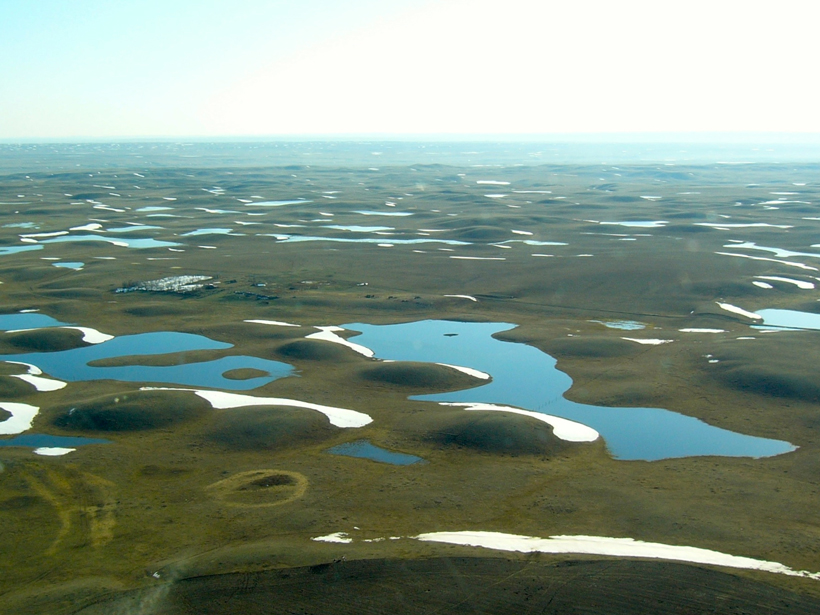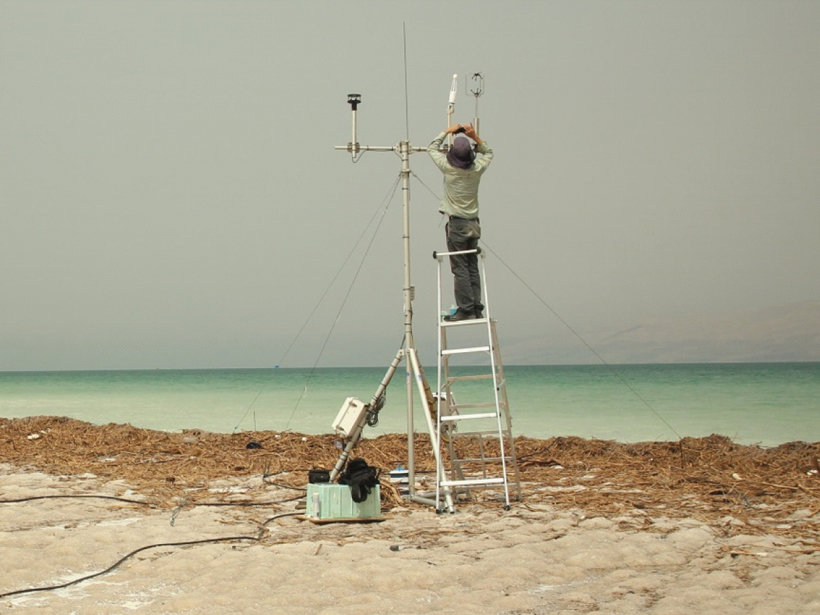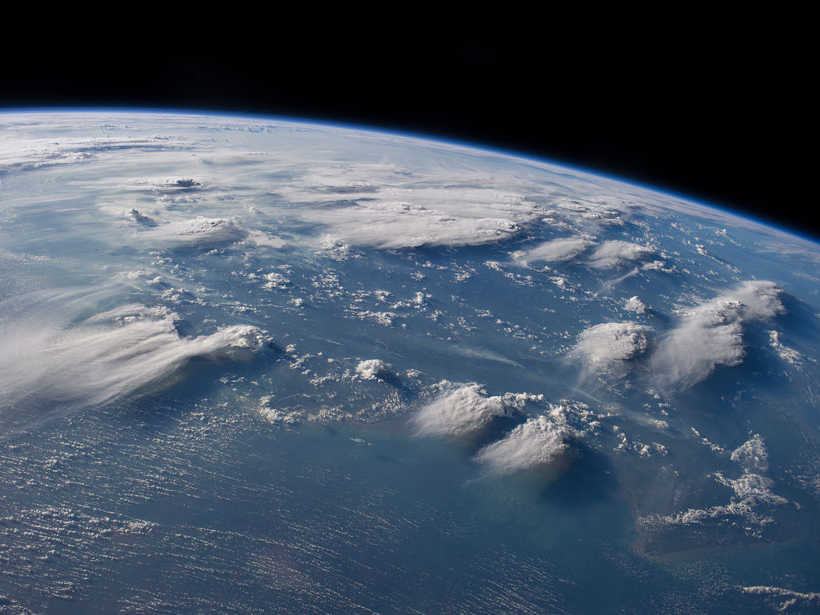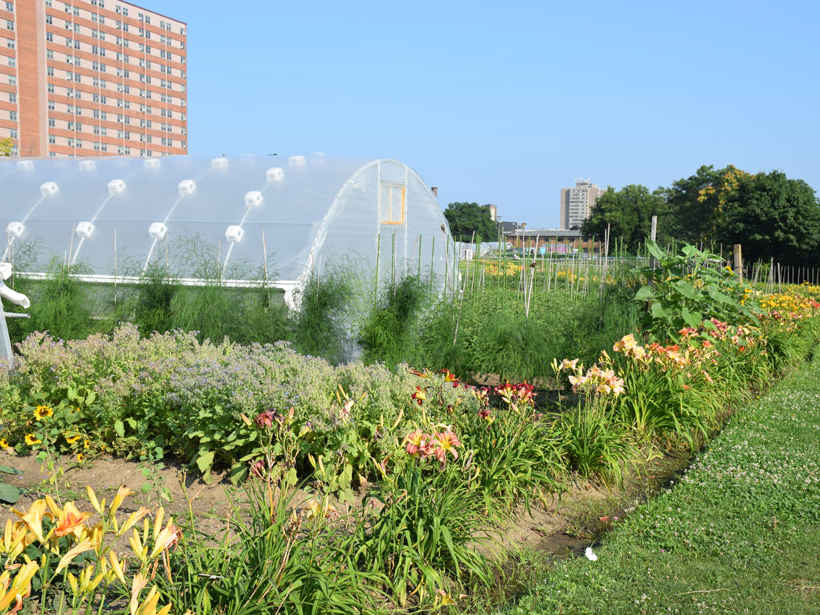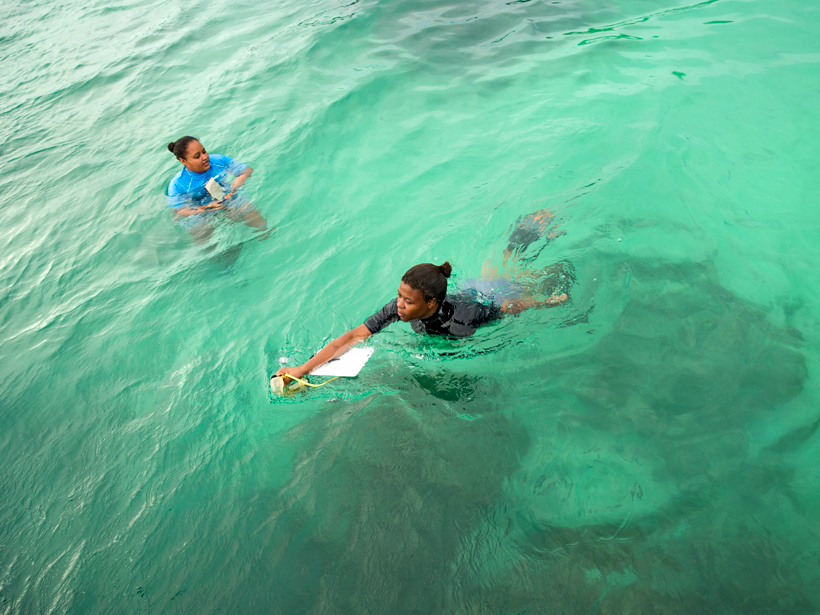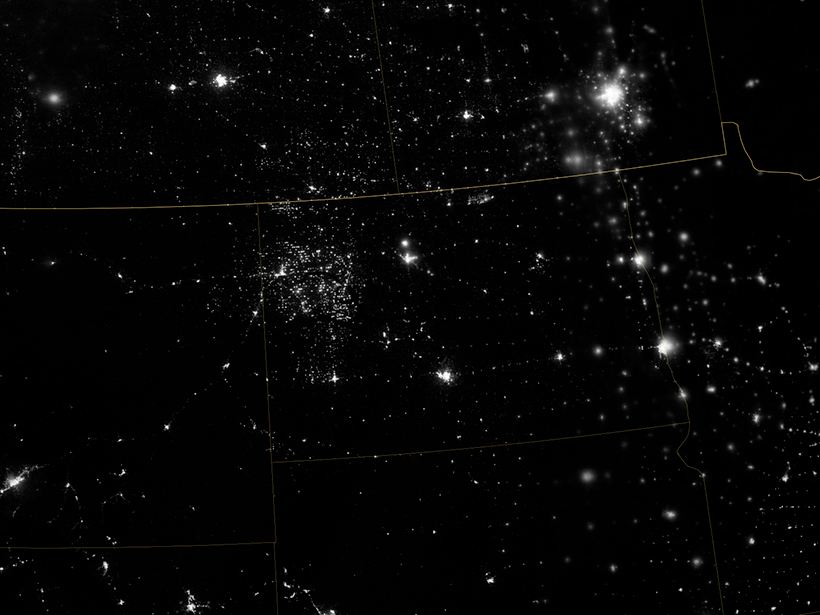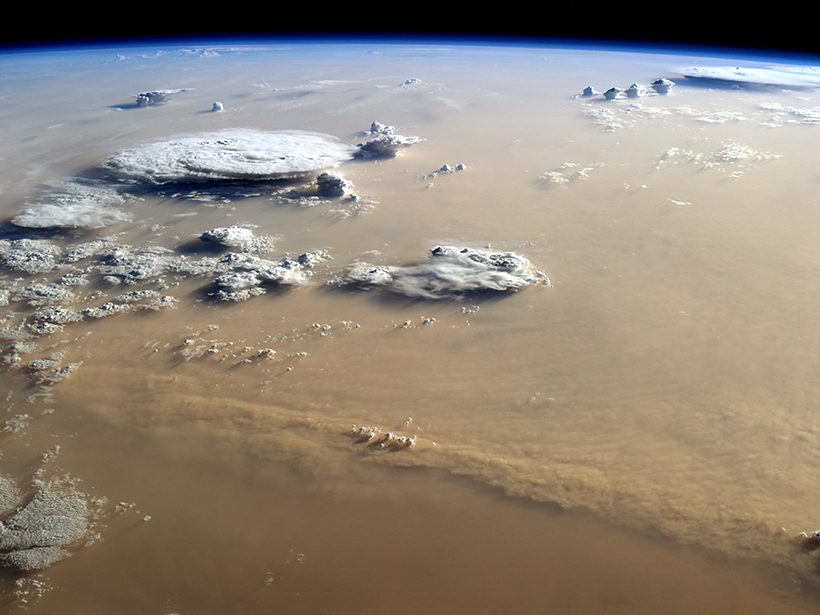Studying the Prairie-Pothole Region of North America could help improve water resource management across the continent.
S. Witman
Dead Sea Provides Unique Insights on Water Evaporation
Scientists study the impacts of sunlight and wind on evaporation at one of Earth’s most unusual lakes.
Modeling Storm Evolution
A “moist shell” makes all the difference in how some storms evolve.
Urban Agriculture Could Provide Billions in Ecosystem Services
Expanding agriculture efforts in cities could improve food security, ecosystem health, and more.
Fiber-Optic Networks Can Be Used as Seismic Arrays
A new study repurposes telecommunications cables to harness sound from light. The method can accurately measure ground motion from distant earthquakes.
Moon’s Magnetic Field May Magnetize Iron That Hits Its Surface
Scientists are using satellite data to study large impact basins on the surface of the Moon that contain magnetic anomalies.
Shedding Light on the Southern Ocean Carbon Sink
One of the world’s largest carbon sinks is still poorly understood.
A Quantitative Look at United Nations’ Global Vision for 2030
Achieving all 17 Sustainable Development Goals will require research, negotiation, and careful planning.
More Earthquakes May Be the Result of Fracking Than We Thought
Scientists show small earthquakes caused by fracking near Guy-Greenbrier, Ark., in 2010 that could have been early indicators of high stress levels on larger faults deeper underground.
Pinpointing Effects of Hadley Cell Expansion
As a major atmospheric circulation system spreads farther poleward, some regions are drying out. But as time passes, will this drying be symmetrical across the globe?

